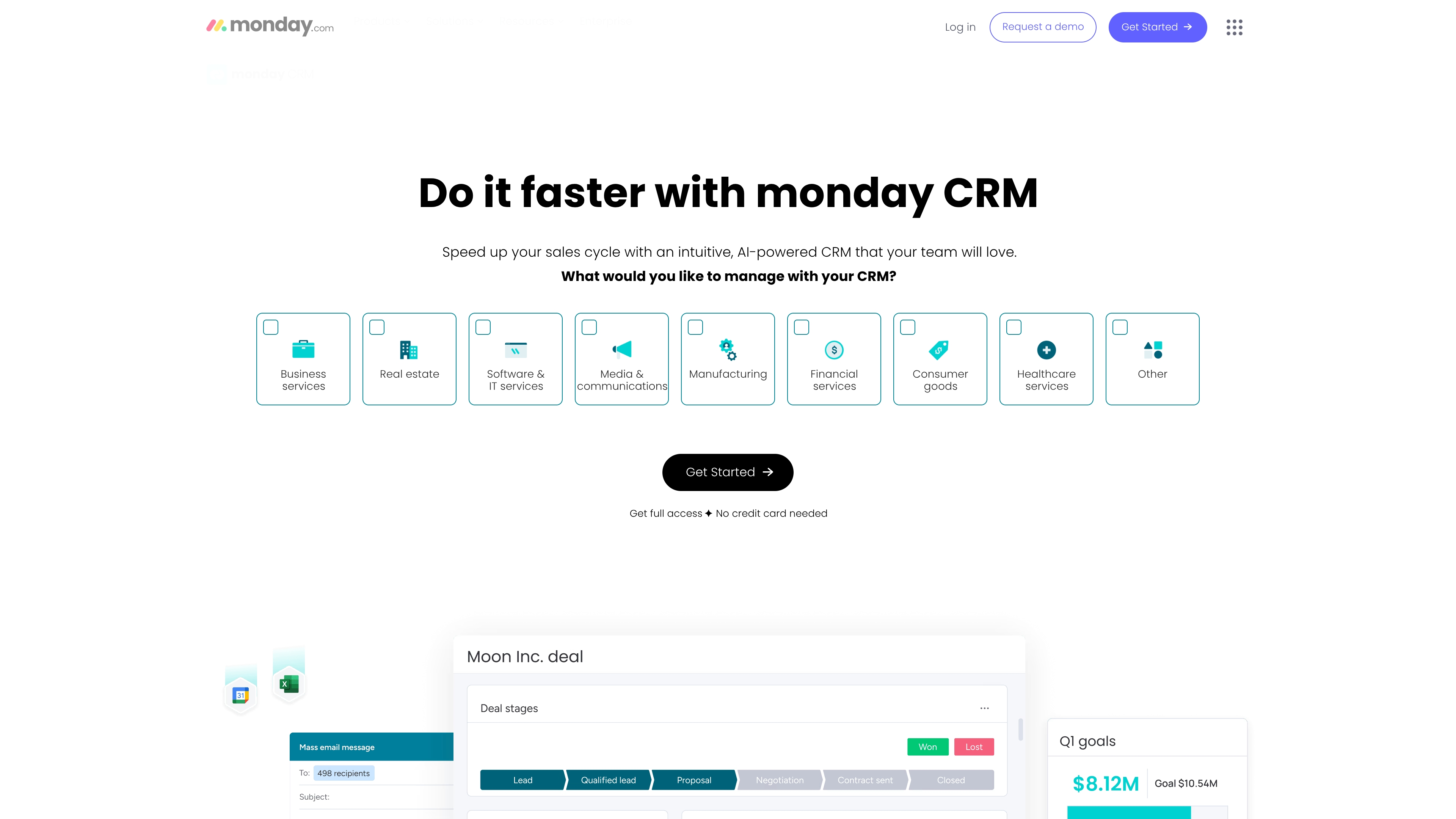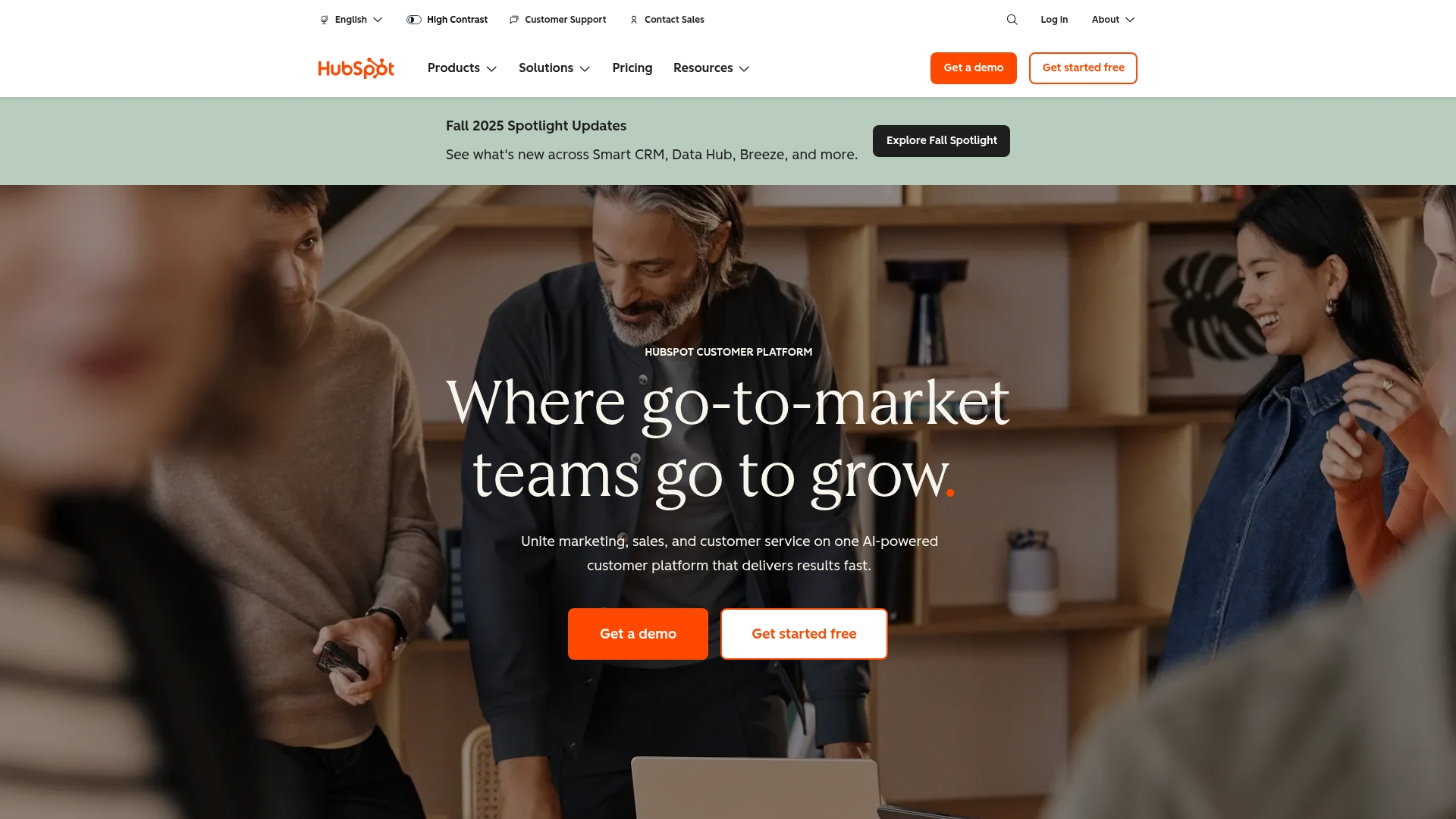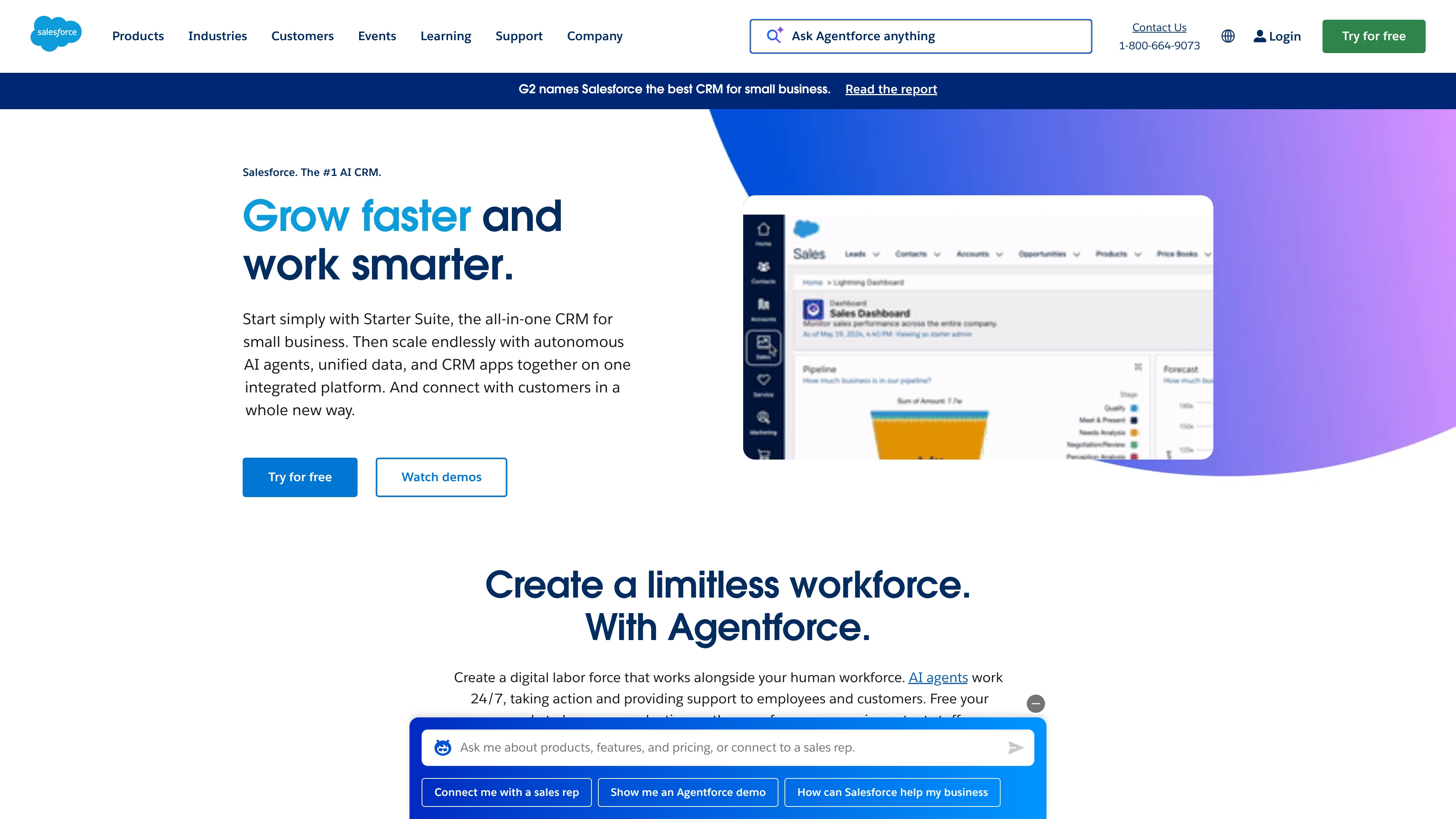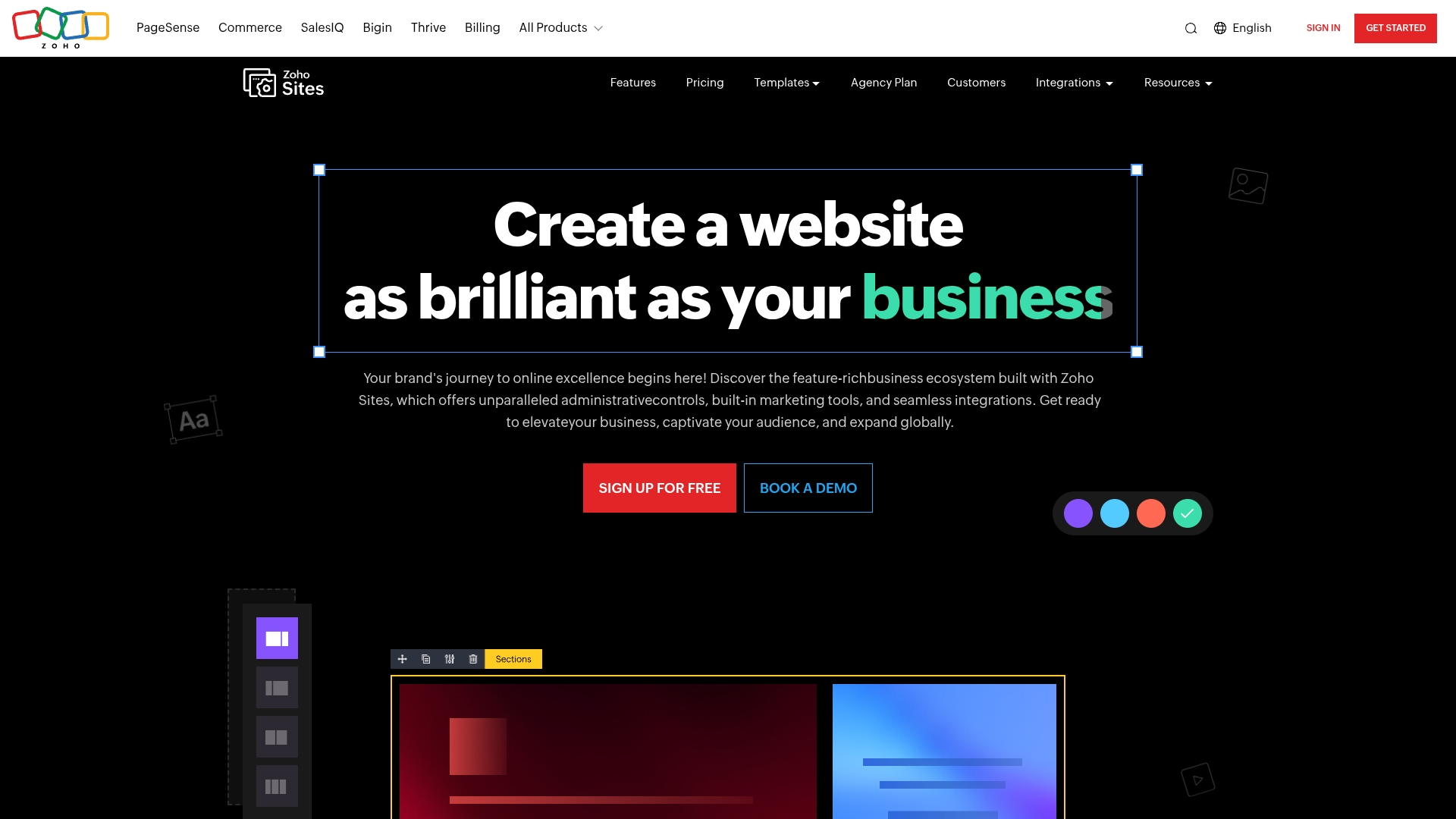Winning a new customer is a major victory, but the real growth strategy begins immediately afterward. Too often, teams lose momentum after the close, missing out on massive revenue potential locked within existing accounts. This common gap between sales and account management creates operational friction, leaving significant renewal and upsell opportunities untapped. Adopting a unified platform is the solution: it helps teams centralize customer data and automate workflows, ensuring everyone remains perfectly aligned.
This guide is designed to cover everything you need to know to make this shift. We will explore the key features to look for, compare the top account management platforms for 2026, and walk through exactly how to choose the best system for your team’s unique process.
Key takeaways
- Growth relies on existing customers: the primary goal of effective account management software is to unlock significant future revenue from existing clients by moving beyond reactive problem-solving to proactive success orchestration and identifying upsell/renewal opportunities.
- Unification is key to momentum: top platforms like monday CRM break down the silos between sales, account management, and support, creating a single, unified view of the customer journey. This alignment accelerates team efficiency and ensures a seamless customer experience.
- AI shifts focus to relationships: modern account management relies on AI to function as a strategic partner, automating repetitive tasks, identifying at-risk accounts, and predicting expansion opportunities, thereby freeing managers to concentrate on high-value human engagement.
- Flexibility outweighs features: the ideal system must be flexible and easy to adopt, such as a no-code solution, integrating seamlessly with existing tools (Gmail, Slack) and adapting to the team’s unique process, rather than forcing a cumbersome workflow change.
- Visibility drives strategy: essential features include customizable, real-time reporting dashboards that track account health, forecast revenue, and spotlight team performance, turning complex data into a clear game plan for strategic decision-making.
What is account management software
Account management software serves as the strategic playbook for your existing clients. While sales focuses on acquiring new business, this system is dedicated to growing happy customers into lifelong champions for your brand.
It acts as your team’s central digital workspace, tracking every interaction so no opportunity is ever missed. This system flags which accounts are primed for upsells and keeps everyone in sync on account health, allowing you to make your next move with total confidence.
Top-performing teams use a single platform like monday CRM to connect account management with their entire sales process. This unified approach breaks down the walls between finding, winning, and growing accounts, giving your whole team a complete view of the entire customer journey.
The ROI of account management software
Existing customers represent more than past victories; they are the most significant driver of future growth. By transforming satisfied clients into enduring partners, effective account management unlocks a stream of predictable revenue, sidestepping the steep acquisition costs associated with new leads.
With the right platform, your team can shift from reactive problem-solving to proactive success orchestration. Gaining total visibility into account health allows for the early identification of expansion opportunities and the mitigation of risks before they escalate. This clarity empowers your team to confidently focus their energy on the relationships that will drive the most impact.
An effective platform should enhance existing workflows rather than necessitate a massive overhaul. Modern platforms like monday CRM automate administrative busywork and conform to a team’s unique sales process, delivering a single source of truth for improved speed and alignment.
Key features to look for in an account management system
Selecting an account management system requires a strategic focus on capabilities that directly empower your team. The ideal platform integrates seamlessly into your existing sales process, removing operational friction so account managers can dedicate their time to cultivating relationships and securing revenue.
Below are the essential features that deliver tangible results:
- Pipeline and deal tracking: requires a visual platform where you can customize stages and track all deals (from new leads to upsells) in one place, giving your team confidence in where every deal stands.
- Collaboration and communication: your system must be the central hub for communicating as one, offering shared notes and a complete history to ensure seamless handoffs between sales and success.
- AI and automation: provides a powerful assistant to automate repetitive work (like follow-ups) and surface key insights, empowering your people with data, not replacing their expertise.
- Reporting and analytics: look for customizable dashboards that track account health, forecast revenue, and spotlight team performance, turning complex data into a clear game plan.
- Integrations and flexibility: prioritize a platform that connects easily with your existing software and allows you to customize workflows without needing a developer, ensuring the system serves your process.
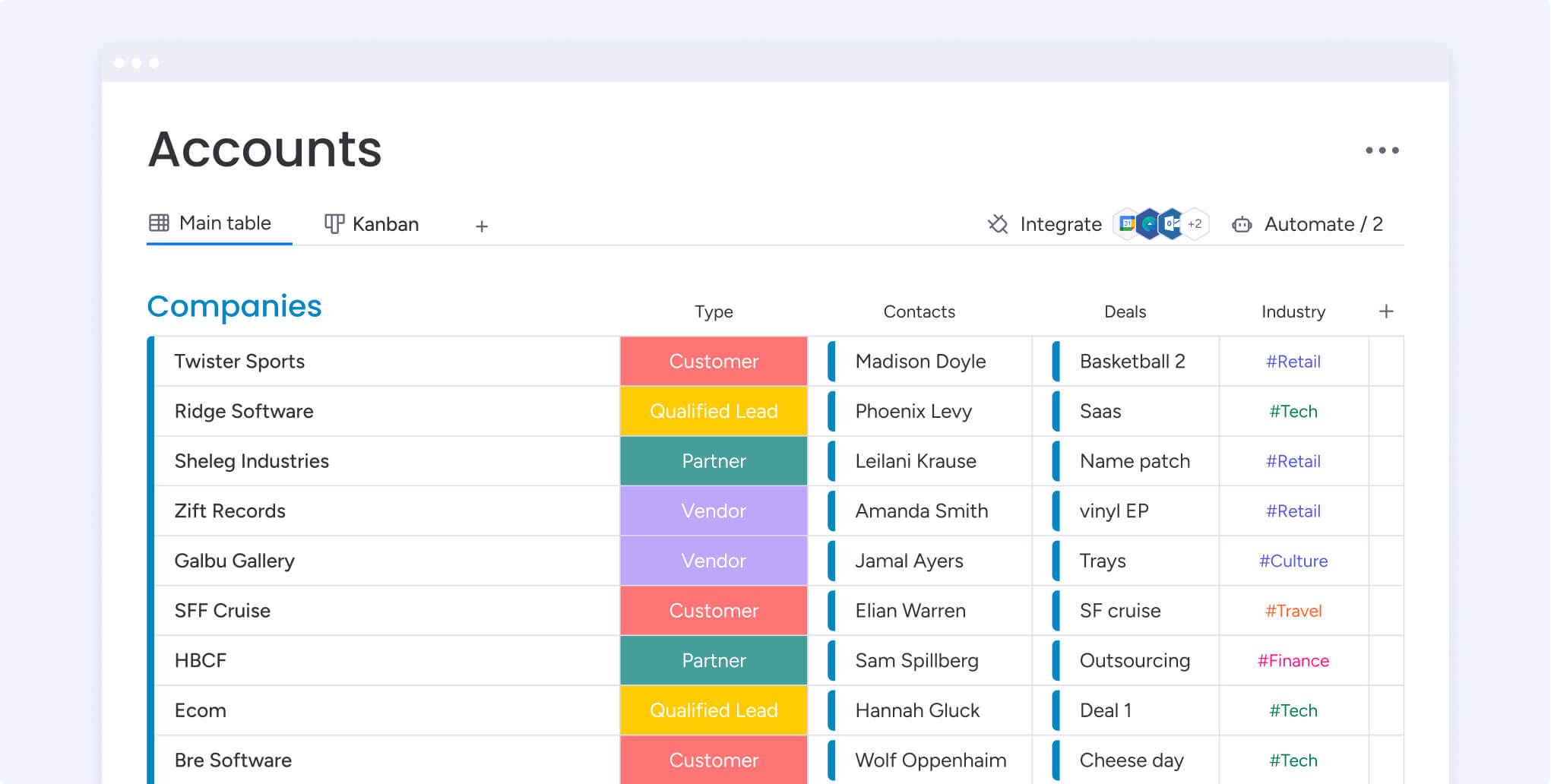
Top account management platforms for 2026
The search for the right account management platform should prioritize utility over an exhaustive feature list. The most effective tool is one that streamlines workflows and empowers sales teams to succeed by automating administrative burdens, thereby freeing them to concentrate on strategic relationship-building and deal closure. This shift is fundamental to boosting team confidence and accelerating momentum.
We’ve looked at the top contenders from a simple perspective below: unearthing which ones truly adapt to your team and accelerate your sales cycle. Remember, a platform should bend to fit your unique process, not the other way around. This empowers everyone to work faster and smarter without a heavy technical lift or a frustrating learning curve.
| Platform name | Best for | Key strengths | Starting price |
|---|---|---|---|
| monday CRM | Teams needing adaptability and AI-powered features | No-code customization, AI-driven insights, seamless integration with monday.com Work OS, adapts to any sales process without technical setup | $10/user/month |
| HubSpot | Companies wanting an all-in-one solution | Comprehensive free tier, strong marketing integration, ideal for businesses seeking unified sales and marketing | Free (with paid upgrades) |
| Salesforce | Large enterprises with complex needs | Extensive customization, robust reporting, best for organizations with dedicated admin resources | $25/user/month |
| Zoho | Small to medium businesses | Affordable, part of the broader Zoho ecosystem, integrated business applications | $14/user/month |
| Pipedrive | Sales-focused teams seeking simplicity | Easy to use, straightforward deal tracking, minimal setup required | $14/user/month |
1. monday CRM
By transforming account management into a streamlined, data-driven process, monday CRM keeps your entire team aligned and your customers engaged. The platform combines powerful customization with intuitive design, making it perfect for sales teams who want to manage complex account relationships without getting bogged down in technical setup.
Example: Providing a unified workspace where account managers, monday CRM centralizes all client information, automates repetitive tasks, and tracks account health in real-time to maximize customer lifetime value.
Key features
- Centralized client profiles: consolidate all contact details, deals, communications, and project history in one accessible location.
- Custom workflow automation: handles follow-up reminders, status updates, and client communications without manual intervention.
- Real-time dashboards and reporting: track key account metrics like customer satisfaction, revenue growth, and churn risk.
Pricing:
- Free: $0 (up to two seats, three boards, basic features).
- Basic: $9/month per seat, billed annually (unlimited viewers, 5GB storage, priority support).
- Standard: $12/month per seat, billed annually (timeline views, automations, integrations up to 250 actions/month).
- Pro: $19/month per seat, billed annually (private boards, advanced features, 25K actions/month).
- Enterprise: custom pricing (enterprise-scale features, 250K actions/month, advanced security).
- Minimum three users required for paid plans.
- Annual billing saves 18% compared to monthly.
Why it stands out:
- No-code customization lets you build account management workflows that match your exact process without technical expertise.
- Seamless handoff capabilities ensure smooth transitions from sales to account management with complete context preservation.
- Visual, intuitive interface drives high adoption rates across teams, eliminating the usual CRM resistance.
Advanced AI features
monday CRM’s AI capabilities help account managers work smarter by automating routine processes and surfacing actionable insights. The platform uses AI to automatically categorize accounts, predict which clients might be at risk of churning, and generate personalized communication templates.
Smart content generation also helps create follow-up emails and meeting summaries, while predictive analytics identify upselling opportunities based on account behavior patterns.
Automations
The platform’s no-code automation builder lets you create sophisticated workflows without technical skills, from simple follow-up reminders to complex multi-step client onboarding sequences.
Pre-built automation recipes also cover common account management scenarios like renewal alerts, satisfaction surveys, and escalation protocols. Further, Enterprise-scale automation capabilities handle up to 250,000 actions per month, ensuring your account management processes run smoothly even as your client base grows.
Integrations
monday CRM connects seamlessly with your existing tech stack through 200+ native integrations, including Gmail, Outlook, Slack, and popular business tools. The robust API allows custom integrations for enterprise clients who need specialized connections to legacy systems or industry-specific software.
Popular integrations include marketing automation platforms, customer support tools, and financial systems to create a unified view of each account relationship.
Account management software features
The platform excels at managing complex account relationships through customizable client profiles that track every interaction, project, and communication in one place. Advanced permission controls ensure sensitive account information stays secure while enabling collaboration across sales, success, and support teams.
To assist further, built-in communication tools and form builders help gather regular customer feedback and maintain consistent touchpoints throughout the customer lifecycle.
2. HubSpot
HubSpot delivers an all-in-one CRM platform that unifies marketing, sales, and service operations for growing businesses. The platform specializes in inbound marketing methodology and seamless cross-departmental collaboration, making it ideal for companies wanting to align their revenue teams on a single system.
Example: HubSpot provides integrated account management capabilities across its Sales Hub and Service Hub, enabling teams to track customer interactions from initial marketing engagement through post-sale support on a unified platform.
Key features:
- Account-based marketing tools: for targeting high-value accounts with personalized campaigns and smart content.
- Unified CRM: logs all customer interactions across marketing, sales, and service teams for complete account visibility.
- Service Hub integration: with ticketing systems, knowledge bases, and customer portals for comprehensive post-sale account management.
Pricing:
- Free CRM: a free plan is available with basic CRM features.
- Starter, Professional, and Enterprise Tiers: Paid plans scale in price and functionality, offering everything from essential tools to advanced automation and reporting.
- Professional and Enterprise plans: typically require mandatory onboarding fees.
Considerations:
- Pricing escalates significantly as you move to higher tiers, with mandatory annual contracts and upfront payment requirements.
- Advanced account management features like predictive analytics and complex automation are restricted to the more expensive Professional and Enterprise plans.
3. Salesforce
Salesforce delivers enterprise-grade CRM solutions that centralize customer data and streamline complex account relationships. The platform specializes in comprehensive customization and robust reporting capabilities, making it ideal for large organizations with dedicated admin resources and intricate business requirements.
Example: Salesforce provides a unified Customer 360 platform that connects sales, service, marketing, and e-commerce functionalities to deliver a complete view of every customer relationship.
Key features:
- Parent-child account hierarchies: maps complex organizational structures and subsidiaries for a clearer view of the business relationship.
- Account teams: allows customizable roles and access levels for collaborative relationship management across departments.
- AI-powered Einstein platform: for predictive insights and automated task recommendations.
Pricing:
- Variable pricing: pricing varies significantly by product and is tailored specifically to the user role and industry.
- Contract terms: most products are available via annual contracts, though some monthly options may exist.
- Free trials: available for select products.
- Pricing information: contact Salesforce sales team
Considerations:
- High total cost of ownership including subscription fees, implementation, and customization expenses.
- Steep learning curve due to extensive features and customization options that can overwhelm new users.
4. Zoho
Zoho delivers a comprehensive suite of business applications that work together seamlessly, making it a powerhouse for companies wanting everything under one roof. The platform is renowned for affordability and deep integration across departments, making it ideal for small to medium businesses that need robust functionality without breaking the bank.
Example: Zoho excels at providing a unified business ecosystem where account management, sales, marketing, and finance work together seamlessly, eliminating the need for multiple disconnected software subscriptions.
Key features:
- 360-degree account view: consolidates all contacts, deals, and projects in one synchronized interface.
- Parent-child account structures: for managing complex organizational hierarchies and departments.
- Built-in inventory management: with invoice tracking, payment processing, and accounting tool integration.
Pricing:
- Standard: $25/month per organization (billed annually) or $29/month (monthly billing).
- Premium: $59/month per organization (billed annually) or $69/month (monthly billing).
- Custom: contact sales for enterprise pricing.
- Additional users: $7.50/month per user (annual) or $9/month (monthly).
- Free trials: 14-day free trial available.
Considerations:
- The extensive suite of applications can feel overwhelming for new users, creating a steep learning curve.
- While individual apps are strong, integration consistency across all 55+ applications can sometimes vary.
5. Pipedrive
Pipedrive transforms sales pipeline management with its visual, drag-and-drop interface that makes deal tracking effortless. Built by salespeople for salespeople, it’s designed specifically for small to medium-sized businesses that want powerful CRM functionality without the complexity of enterprise platforms.
Example: Pipedrive helps sales teams organize their entire sales process through visual pipeline management and activity-based selling methodology.
Key features:
- Visual sales pipeline: with drag-and-drop deal management across customizable stages.
- Activity-based selling prompts: that ensure consistent follow-up and engagement.
- Comprehensive contact timeline: showing all interactions, emails, and meeting history.
Pricing:
- Lite: $14/month per user (billed annually).
- Growth: $39/month per user (billed annually).
- Premium: $49/month per user (billed annually).
- Ultimate: $79/month per user (billed annually).
- Add-ons available: for extra features such as LeadBooster (starting at $32.50/month per company) and Projects (starting at $6.67/month per user).
Considerations:
- Lower-tier plans have limited automation features and workflow capabilities.
- Advanced reporting and analytics require upgrading to higher-priced plans, which can increase costs significantly.
How to choose the best account management software
Making the right software choice hinges on identifying a platform that aligns with your team’s operational DNA. An optimal system should integrate so naturally into your daily workflows that it becomes an invisible force multiplier, converting disjointed processes into a cohesive revenue-generating machine. The objective is to adopt a solution that amplifies your team’s capabilities rather than adding complexity to their tasks.
Start by pinpointing exactly where deals get stuck or where communication breaks down: this becomes your playbook for what to look for. Instead of getting distracted by bells and whistles, focus on core capabilities that directly solve those pain points, like a single source for all customer data or automated follow-ups that ensure no opportunity slips through the cracks.
This solution-first approach ensures you are investing in real results from day one.
Finally, think about your long-term game plan and how the software will grow alongside you. A platform that is intuitive and easy to adopt saves you from hidden costs in training, while flexible pricing prevents budget headaches as your team expands.
Keep in mind that your goal is a true partner in growth, a platform that scales with your success and keeps everyone confidently moving forward, together.
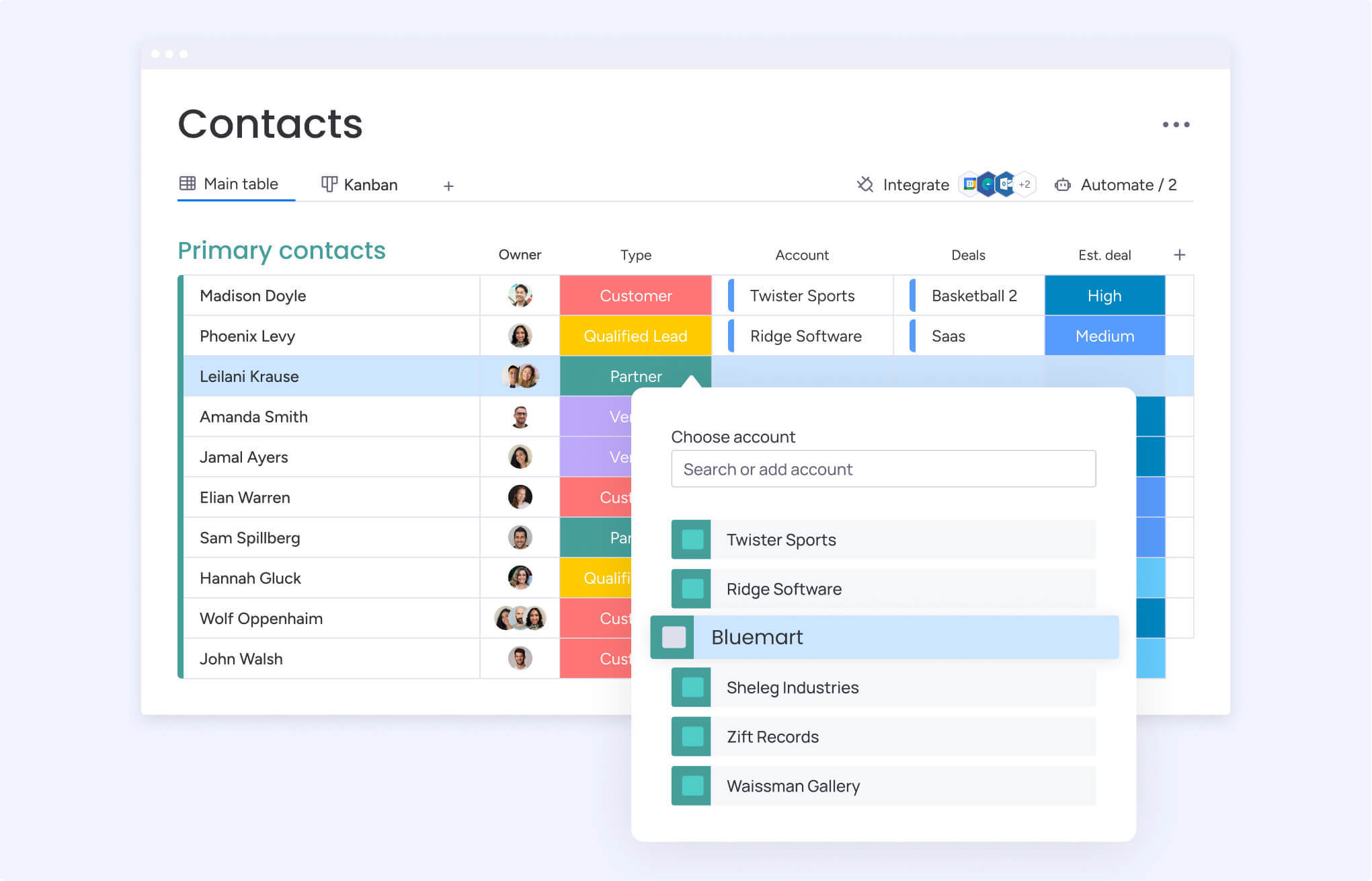
Key trends driving account management
The evolution of account management is fundamentally driven by intelligent technology acting as a strategic partner. This shift is vital: it moves teams away from administrative focus and toward high-value, relationship-driven work.
Modern account management trends focus on:
- Strategic AI: AI-powered systems proactively identify at-risk accounts and automate routine communications, liberating managers to focus on long-term loyalty and revenue. This strategic automation shifts focus to the critical human element of client engagement.
- Unified collaboration: breaking down silos is essential. Connecting sales, marketing, and support on a single platform gives everyone a unified view of the customer journey, ensuring total team alignment and a seamless customer experience that builds trust.
- Tech stack simplification: the ultimate power move is creating a single source of truth from the first chat to the final renewal. Simplifying the tech stack provides incredible visibility and control, eliminating the guesswork that comes from juggling multiple systems.
With everything in one place, your entire sales motion becomes faster, smarter, and more confident.
Take the next steps with monday CRM
Selecting the right platform is a collaborative endeavor that moves beyond a simple technology purchase. The ideal tool unifies your entire team around a shared strategy and offers the flexibility necessary to evolve seamlessly with your business. This unified approach is the foundation for collective success.
It is time to transform workflow hurdles, such as scattered data or manual follow-ups, into your team’s biggest strengths. The platform built to mould around your unique process, providing the central system for total clarity and control over every account, is monday CRM. Give your team the confidence that comes from having the right tool for the job today.
The content in this article is provided for informational purposes only and, to the best of monday.com’s knowledge, the information provided in this article is accurate and up-to-date at the time of publication. That said, monday.com encourages readers to verify all information directly.
Frequently asked questions
What software do account managers use?
Account managers use CRM platforms and customer success software to track relationships and identify growth opportunities. These systems centralize customer data, which helps teams collaborate and manage expansion efforts effectively.
What is the difference between CRM and account management software?
Traditional CRM software focuses on acquiring new customers, while account management software specializes in nurturing and growing existing customer relationships. Modern platforms like monday CRM integrate both functions to manage the entire customer journey in one place.
How can AI improve account management processes?
AI automates data analysis to predict at-risk accounts, categorize customer feedback, and suggest personalized engagement strategies. This allows your team to focus on high-value activities like relationship-building instead of manual data review.
How do I choose account management software for a small team?
Small teams should prioritize software that is easy to use, affordable, and includes essential features for contact and deal tracking. Choose a flexible platform that can scale with your team without requiring extensive training or IT support.
Can account management software integrate with existing business systems?
Yes, modern account management platforms offer robust integrations with common business tools like email, calendars, and billing systems. This creates a single source of truth for all customer data by ensuring information flows seamlessly between your applications.
What features matter most in account management software?
The most critical features are centralized customer data, pipeline tracking, team collaboration tools, and real-time reporting dashboards. Focus on the capabilities that directly support your team's workflow to ensure high adoption and efficiency.


